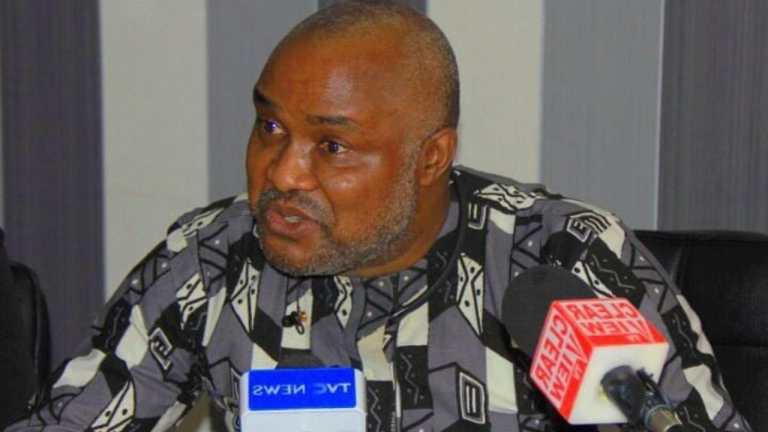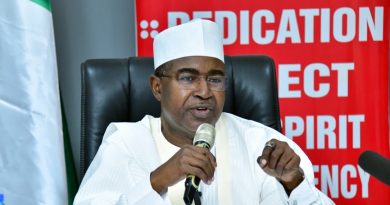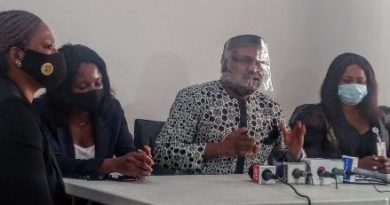NIGERIA’s NGOZI TO THE WORLD- BY EMMANUEL ONWUBIKO
I will begin my reflection on the triumphant second emergence of the typically Nigerian amazon— Ngozi Okonjo Iweala— to the global stage as a significant leader, by digging out profoundly philosophical citations from two books one of which is on the concept of Human Rights and the other about the historical conquests made by Iconic figures in the World.
From my first reference book comes the following citations: “IMMORTAL GOD”, exclaimed Erasmus of Rotterdam in 1517, “what a world I see dawning! Why can I not grow young again? In two famous letters of the same year, the great humanist, in many ways a touch- stone of the spirit of his time, described his vision more clearly. He saw the “near approach of a golden age, in which, he predicted, “three of the chief blessings of humanity are about to be restored to her-true Christian piety, learning of the best sort, and, finally, the public and lasting concord of Christendom. Some years earlier Erasmus’s outlook had been more gloomy, and he had complained, “Who being a good man in deed, does not see and lament this marvelous corrupt world?”
Same iconic book records that: “When was there ever more tyranny? When did avarice reign more largely and less punished? When did our iniquity so largely. How with more liberty? When was ever charity so cold? A similar view, inspired by the “disaster following so closely on his optimistic prophecy, is expressed in a letter to Martin Luther in 1526, lamenting the “irremediable confusion of everything, for which, he remarked, “we have to thank only your uncontrollable nature”. (The Portable Renaissance Reader Edited by James Bruce Ross and Mary Martin McLAUGHIN).
The book on human rights and global politics stated in one of her chapters thus: “True emancipation is not a fixed idea of what the world would be like some distant end-point Utopia. A properly historicised conception of emancipation recognises that every emancipation creates a new margin, just as every major technological fix creates new problems (such as the new ethical problems raised by medical breakthroughs).
Emancipation contains a theory of progress, but also recognises that life is one thing after another. Because emancipation must be continuously contextual, because material and other conditions change, it has to be an open and flexible vision. In terms of practical politics it is better to use the adjective, as in emancipatory policies, which implies movement, rather than the noun, emancipation, which implies a static state. The reality of emancipation is best likened to a political horizon: something to aim for, something that establishes perspective, but something that by definition can never be reached. Emancipation is not a state of being; it is the condition of becoming”. (Human Rights in Global Politics Edited by Tim Dunne and Nicolas J. Wheeler).
These deeply philosophical comments which came from two very good books are simply being used to demonstrate the unique Joy that should be in the minds of over 1.216 billion Africans and Nigerians in particular on the appointment of Nigerian-born Mrs. Ngozi Okonjo-Iweala into the World Trade Organization as the first African and indeed the first woman to have reached such phenomenal height.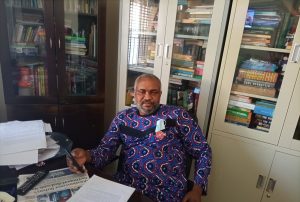
The first book of reference represents our current existential scenarios as a nation of over 200 million people but with one of the most predatory political class ruining all aspects of our life but yet out of this debris of political rottenness comes a distinguished economist in the person of Ngozi the Wife of Doctor Okonjo Iweala who has now made eternal history as the first Woman and first ever African out if over one billion Africans to become the Secretary General of the World Trade Organisation. The second book talks about emancipation and should take us to the question millions of poor Nigerians are asking regarding what they stand to benefit from the global position of one of the finest daughter’s out of Nigeria? Majority of Nigerians will wish that her tenure will bring about collective economic and trade emancipation for the productive class of Nigerians.
And so, the whole of today has being all about this peculiar Ngozi (blessing) that Nigeria has donated to the World to make peace amongst international traders with the mindset of also bringing about economic growth to the African continent and Nigeria in particular. And so the British as well as the United states media have had frequent reports and have had frequent broadcast of the emergence of this lady whose signature line of clothing gives her out easily as an African women. Importantly, the cosmology and pholosophy behind her name as we will come to learn from a Theologian will explain further and explore the nexus between her name and what she has brought to the global community of economist for over two decades.
Just before 4pm Monday, when it became known through a virtual conference that Ngozi has finally become the head of the WTO, this was how the British Broadcasting Corporation announced to the World about the second coming of this uniquely Nigerian Ngozi to the World.
BBC shouted that Nigeria’s Ngozi Okonjo-Iweala looks set to be confirmed Monday as the first woman and first African leader of the beleaguered World Trade Organization, a near-paralysed institution desperately needing a kick-start.
It recalled that the WTO has called a special General Council meeting at which the former Nigerian Finance Minister and World Bank veteran is expected to be formally selected as the global trade body’s new director-general.
It then delved into historicity by reminding us that US President Joe Biden strongly swung behind her candidacy shortly after the only other remaining contender, South Korean Trade Minister Yoo Myung-hee, pulled out.
“I look forward to finalising the process,” Okonjo-Iweala said on February 6 after securing the Biden administration’s support.
The organisation is also eager to conclude the drawn-out process, having been leaderless since Brazilian career diplomat Roberto Azevedo stepped down last August, a year ahead of schedule.
The process of picking one of eight candidates to succeed him had been expected to wrap up by November, but the administration of former US president Donald Trump blocked the consensus to appoint Okonjo-Iweala.
The BBC says the 66-year-old will not be at the WTO’s Geneva headquarters for Monday’s virtual session and it is not known when she would take up her duties.
The 164-member organisation’s special session gets under way at 1400 GMT and Okonjo-Iweala is scheduled to hold an online press conference two hours later.
The WTO picks its leaders through consensus-finding, so even though she is the only candidate still in the race — boasting US, EU and African backing — there is always the chance of a spanner being thrown in the works.
She will take over an organisation mired in multiple crises and struggling to help member states navigate the severe global economic slump triggered by the coronavirus pandemic.
Okonjo-Iweala argued during the race that she was best placed out of the eight candidates for the post to steer the WTO through the crises.
“I am a reform candidate,” she insisted.
She has among other things warned that growing protectionism and nationalism have been spurred on by the pandemic and insists barriers need to be lowered to help the world recover, reports the BBC.
The British media conglomerate said even before COVID-19 battered the global economy, the WTO was weighed down by stalled trade talks and struggled to curb trade tensions between the United States and China.
The WTO also faced relentless attacks from Washington under Biden’s predecessor Donald Trump. Among other things, Trump brought the WTO’s dispute settlement appeal system to a grinding halt in late 2019.
Okonjo-Iweala has said her priorities include getting long-blocked trade talks on fishery subsidies across the finish line and breathing life back into WTO’s Appellate Body.
Twice Nigeria’s finance minister (2003-2006 and 2011-2015) and its first female foreign minister in a two-month stint in 2006, Okonjo-Iweala is seen as a trailblazer in her west African homeland.
She has brushed off claims she lacks experience as a trade minister or negotiator, insisting that what is needed to lead the WTO is not technical skills but “boldness, courage”.
She has portrayed herself as a champion against Nigeria’s rampant corruption — saying her own mother was even kidnapped over her attempts to tackle the scourge.
But her critics argue she should have done more to tackle it while in power.
A development economist by training with degrees from the Massachusetts Institute of Technology and Harvard, Okonjo-Iweala has also had a 25-year career as a development economist at the World Bank, eventually becoming its number two.
She is on the Twitter board of directors and chaired Gavi, the Vaccine Alliance.
As stated by this writer earlier, Ngozi had at one time become the Vice President of the World Bank, a position that significantly made her very powerful around the World. I think Times magazine ranks her amongst the first one hundred most powerful economists of all times.
But as Nigerians, one factor that remains infinite in our minds is how as the Finance minister, she successfully negotiated debts pardon for Nigeria.
As captured by reporters, Nigeria’s vigorous campaign for debt pardon has paid off. Some of its creditors under the Paris Club, which have rated the Federal Government’s economic reforms as far-reaching and focused, have written off $18 billion or 60 per cent of the $30 billion Nigeria owed the cartel.
That is not all. The creditors said that they would go further to raise the amount of the debt to be cancelled to $20 billion or 67 per cent very soon.
In a statement conveying the cheering news to the Federal Government, the Paris Club said that in arriving at the debt forgiveness option for Nigeria, it took special cognisance of the economic reform programmes of President Olusegun Obasanjo’s administration.
Only recently, the Group of Eight (G-8) richest nations wrote off $40 billion debt of the world’s poorest countries, 14 of which are in Africa.
Nigeria was completely excluded from the G-8 largesse, but officials of the Federal Government and some foreign financial agencies like the World Bank had assured that the nation was being considered for debt pardon under a special package.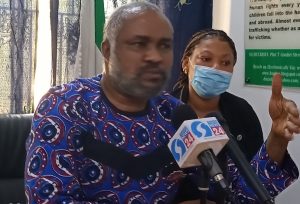
Hence, when the news came from the Paris Club yesterday, an elated Finance Minister, (as she then was) Dr. Ngozi Okonjo-Iweala, went into the nitty-gritty of the creditor’s action.
The creditors, which also noted the government’s willingness to take advantage of exceptional revenue to finance an exit treatment from the Paris Club, said that the significant relief would ensure long-term debt sustainability.
The creditors said that the measure represents their contribution to Nigeria’s economic development.
“It would also help Nigeria in its fight against poverty,” the creditors said in the statement. Years after she left, the Country under President Muhammadu Buhari has taken us right back to the heavily indebted nation’s status just as Nigeria has become the Poverty capital of the World. The current administration indeed bastardised the objectives of the debts pardon negotiated by Ngozi Okonjo Iweala but ironically the same President Muhammadu Buhari vehemently backed Ngozi’s nomination to the WTO seat. Her assumption of office has come only few weeks after Africa delivered her first ever continental trade agreements.
The African Continental Free Trade Area (AfCFTA) is flagship project of the African Union’s Agenda 2063, a blueprint for attaining inclusive and sustainable development across the continent over the next 50 years. It aims to boost intra-African trade by providing a comprehensive and mutually beneficial trade agreement among the member states, covering trade in goods and services, investment, intellectual property rights and competition policy.
The Agreement entered into force on 30 May, 2019 for the 24 countries that had deposited their instruments of ratification with the African Union Commission (AUC) Chairperson – the designated depositary for this purpose. This date marked 30 days after the 22-country threshold had been reached on 29 April, 2019, as stipulated in Article 23 of the Agreement.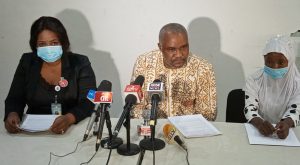
The operational phase of the AfCFTA was subsequently launched during the 12th Extraordinary Session of the Assembly of the African Union in Niamey, Niger on 7 July 2019. The AfCFTA will be governed by five operational instruments, i.e. the Rules of Origin; the online negotiating forum; the monitoring and elimination of non-tariff barriers; a digital payments system and the African Trade Observatory. I will conclude with recalling the theological, cosmological and philosophical import of the name NgoziChukwu so we properly understand that there is the hand of God in the rise and rise of this iconic lady of our times. A versatile writer Thomas M. Landy writes that one of the enduring—and literally compelling—aspects of Igbo traditional culture is the practice of naming.
He argues that in traditional culture, names have real meaning and power. “Igbo names are not mere tags to distinguish one thing or person from another; but are expressions of the nature of that which they stand for.” While Igbo names can simply refer to the circumstances of birth, as in the case of a child born to parents who had been unable to conceive, or simply in reference to the day of birth, more often they send a theological message or a compelling reminder of a certain expected virtue to be instilled in the child. In traditional culture, “an Igbo child at birth is dedicated to a god called a chi, who is responsible for the guidance and protection of that child.” Today, parents still choose Igbo names to carry on that tradition in Christianized fashion.
He says the power of names was immediately apparent in a gathering of small children one evening in front of Hearts of Jesus and Mary Parish, where each child was eager to share their names, and their English translations: “Akachukwu, ‘Hand of God’”; “Osinachi, ‘It comes from God’”; “Daberechi, ‘Depend on God’”; “Chinecherem, ‘God thinks for me’”; “Ezinne, ‘Good Mother.’” One scholar describes such names as “theophanic,” expressions of God’s presence with the named person, “fruits of Igbo people’s experience of the divine.” Something about the children’s ease with sharing and translating those names to English communicated such an awareness and experience. An extraordinary number of the names one encounters have Christian meaning as adaptations from traditional names: Chimamanda means “God Will Not Fail Me.”
The writer then stated that Ngozi means “blessing.” NgoziChukwu means “blessing from God.”
Whereas Nigeria has blessed the World through Ngozi Okonjo Iweala but the over 100 million absolutely poor Nigerians are hoping and praying for their economic emancipation.
Can Ngozi’s rise to global stardom help the wretched of the Nigerian nation out of their existential quagmire? ONLY time shall tell.
Emmanuel Onwubiko is HEAD OF HUMAN RIGHTS WRITERS ASSOCIATION OF NIGERIA (HURIWA) and can be reached on www.thenigerianinsidernews.com, www.huriwanigeria.com; www.huriwa@blogspot.com.

